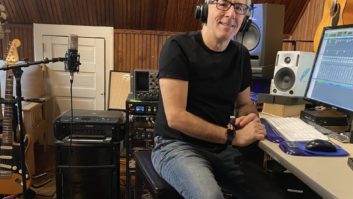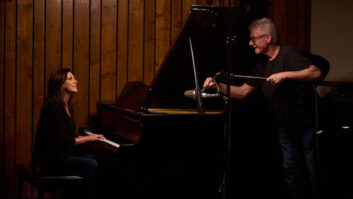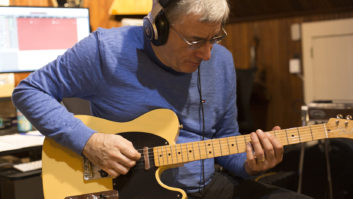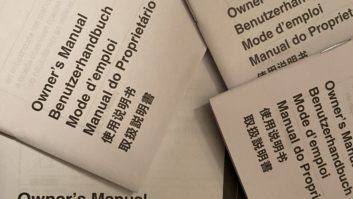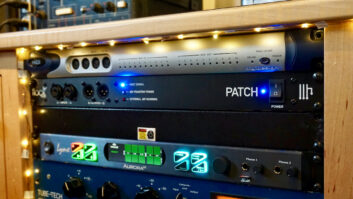I recently spent a frustrating couple of hours trying to “improve” some parts in a recording of a TV-music cue I was working on. I started the project by doing a rough demo, then decided to re-record some of the parts, particularly for the electric guitar, to help make the piece sound more “polished.”
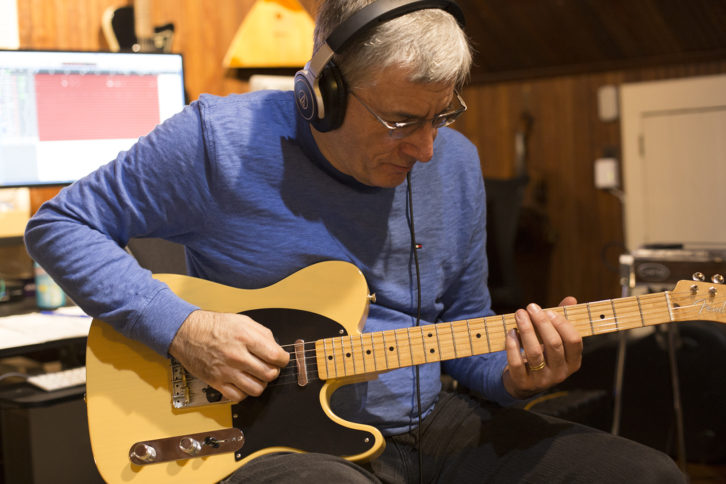
The cue had an alt-country feel, and the guitar track in question was a clean electric part with tremolo, featuring melody lines on the lower strings and chords at specific points. A mandolin played some lines on top, as well. Other tracks included an acoustic rhythm guitar, electric bass and a MIDI drum part.
It occurred to me that the electric guitar would be better off if I split it into two tracks: the lines on one track with the original sound, and the rhythm part on another with a different sound.
After working on it for about an hour, and even experimenting with a baritone guitar for the low lines, I realized that the original part had a magic to it that I couldn’t replicate. It wasn’t that it was hard to play, but I wasn’t able to get the same vibe. So, besides fixing a couple of small sections via punch-ins, I ended up scrapping all the new stuff and keeping that original track.
The “early takes are best” phenomenon is something we’ve all encountered, whether we’re artists, engineers, producers or all of the above. Often, if things don’t go well in the first part of a session, whether it’s a singer doing overdubs or a band doing basics, the results start going downhill and frustration mounts. At some point, it dawns on you that you’ve reached a point of diminishing returns. Unless you’re on a tight deadline, you’re best giving it a rest of some duration—even until another day—before trying again.
It’s not uncommon for engineers to surreptitiously turn record on when they’re supposedly just getting levels and the talent is just running through their part, in hopes of capturing a brilliant early take. In those moments, the talent, whether an individual or ensemble, is relaxed and not feeling as much pressure as during an actual “take,” when every note is scrutinized and it’s easy to tense up. As a result, creativity and musicianship flow more easily.
If you’re recording by yourself, it’s a somewhat different dynamic. The only person scrutinizing you is you. Still, you’re bound to be more relaxed in the beginning before you’ve reached take seven or eight and frustration starts buiding.
But it’s more than just nervousness and exasperation. Whether you’re recording with others or by yourself, playing a part over repeatedly will progressively diminish your perspective and creativity, and eventually you lose it completely. Your mindset changes from “I’m going to do a great performance” to “I just have to get this done.” When that happens, you’re hosed until you walk away for a period of time.
Read more Mix Blog Studio: Headphone Helpers.
A similar phenomenon occurs when mixing. After working for too long, your judgment begins to ebb, and you start making questionable decisions.
So what’s the answer? There isn’t one, but there are some things you can do. When tracking, always keep your early takes, because you might not realize until later that one of those is a gem. If you end up doing 25 takes, you might be able to comp something together with bits and pieces of your various attempts, but the continuity and feel is usually better when you nail your part from top to bottom, or at least only need to fix a bit here or there.
If you’re working on your own, you have more freedom to put the problematic task on hold temporarily and move on to something else. You can come back to the troublesome song or part at a later time when you’re fresh.
Sometimes you just have to give yourself a break.
